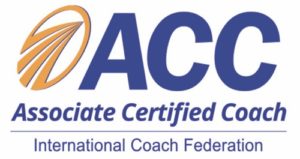Below is a typical conversation, especially with a new client that is learning how to utilize all the components of time management to create the success they are looking for.
Client: “It’s strange. I had a really unproductive day on Monday, but a really productive day yesterday.”
Cindy: “What do you think may have contributed to the difference?”
Client: “I have no idea. I just couldn’t get started on Monday.”
Cindy: “Let’s do some exploration. Can you show me your calendar, please?”
Before the client could show me their calendar, the awareness kicked in.
There were no entries on Monday. Absolutely none. No appointments and no action items. Tuesday looked entirely different. There were multiple appointments and several action items, each of which had been checked off.
What made the difference? Planning. My client had every intention of doing their weekly planning first thing on Monday morning, but when they opened their planner, the day was a blank slate. Instead of hitting the ground running on Monday, they languished. They straightened their office, cleaned up some digital files, worked on plans for their parent’s anniversary party, and called a couple of friends. Then somewhere around mid-afternoon, they slipped into a deep funk, realizing the day was almost over and they’d accomplished nearly nothing. Feeling frustrated and committed to not having that happen again, they made a plan for Tuesday.
On Tuesday morning, with a clear roadmap of how they wanted the day to unfold, the client hit the ground running. Their meetings were laid out, action items were noted within time blocks, and they’d even carved out time for lunch and a short walk.
What’s the difference? Planning.
The difference between a highly productive day and a less than productive day generally resides in the planning process. Unfortunately, planning is one of those things that many of us don’t put on our calendars. Who plans to plan? Highly efficient people do.
This client generally works 9:00 PM – 5:00 PM, so that is their available Time.
Tasks can be anything that takes up time on our calendars. For example, I refer to meetings with others as “non-negotiable.” These items take precedence over tasks that can be accomplished at any time. Next comes fitting action items, like completing their expense report, around the “non-negotiables.”
Then there is the crucial Energy Management piece. This is very important but not often thought about. If completing their expense report is simple and rewarding, it can be done just about any time. However, if it is hard and takes a lot of energy and resilience, planning this activity at the time of day where they have the highest energy is essential.
One of the nuances of planning is figuring out when to do it. For some, Monday morning is fine; that’s when they feel the most energy. Others like to plan on Friday afternoon, yet some think they have “checked out” by then, so their best planning time is on Thursday. It really doesn’t matter when you make your plan; the key is that plans are made, and we have a roadmap for how we want to most efficiently spend our time.
Cindy Jobs, PCAC, ACC
Looking for more information?
Click here for ADHD-friendly Time Management Tools
Click here to schedule a complimentary breakthrough session.
For more helpful information, follow me on Facebook.






